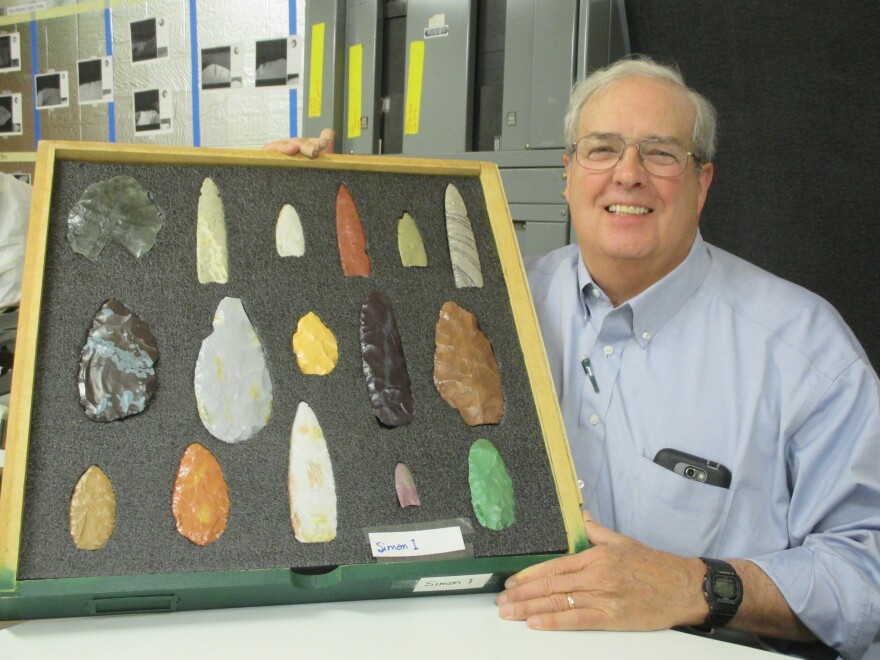It would be ideal if anthropology students had access to the world's oldest artifacts for their studies. But many of those objects are locked away in museums and private collections. That's why Northern Arizona University professor Francis Smiley makes epoxy replicas of knives, blades and spear points, so his students have hands-on training with Stone Age tools.
"It's significant because these artifacts are largely unavailable," Smiley says. "They're even unavailable to fairly senior researchers, let alone students. And so we can't just get into the basement of the British Museum or the American Museum of Natural History or the Smithsonian. So, if I have the casts of tools that are in private collections, or federal collections, or museum collections, I can make them available to all my students."
Smiley's replicas make up the NAU Lithic Cast Teaching and Research Collection, one of the largest in the world. The more than 1,000 pieces are meticulously crafted duplicates of tools dating back nearly 3,000,000 years. The collection includes a flint knife belonging to Egyptian royalty and spear points from North America's earliest humans.

"This helps them understand the prehistoric record, and all of the casts in our collection, as quintessential representations of prehistoric technology. That helps the students immensely in the process of understanding the human career", Smiley says.
He believes his replicas help students understand how early cultures developed, utilized and traded tools as the foundation of human technology.
Brain Food is produced by KNAU, Arizona Public Radio




